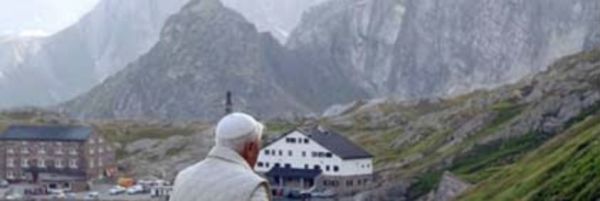If man is not reconciled with God, he is also in conflict with creation. He is not reconciled with himself, he would like to be something other than what he is and consequently he is not reconciled with his neighbour either. Part of reconciliation is also the ability to acknowledge guilt and to ask forgiveness from God and from others. Lastly, part of the process of reconciliation is also the readiness to do penance, the willingness to suffer deeply for one's sin and to allow oneself to be transformed. Part of this is the gratuitousness of which the Encyclical Caritas in Veritate speaks repeatedly: the readiness to do more than what is necessary, not to tally costs, but to go beyond merely legal requirements. Part of this is the generosity which God himself has shown us. We think of Jesus' words: "If you are offering your gift at the altar, and there remember that your brother has something against you, leave your gift there before the altar and go; first be reconciled to your brother, and then come and offer your gift" (Mt 5: 23ff.). God, knowing that we were unreconciled and seeing that we have something against him, rose up and came to meet us, even though he alone was in the right. He came to meet us even to the Cross, in order to reconcile us. This is what it means to give freely: a willingness to take the first step; to be the first to reach out to the other, to offer reconciliation, to accept the suffering entailed in giving up being in the right. To persevere in the desire for reconciliation: God gave us an example, and this is the way for us to become like him; it is an attitude constantly needed in our world. Today we must learn once more how to acknowledge guilt, we must shake off the illusion of being innocent. We must learn how to do penance, to let ourselves be transformed; to reach out to the other and to let God give us the courage and strength for this renewal.
[Pope Benedict, Address to the Roman Curia 21 December 2009]












